Often when we think of psychologists, we imagine a consultation room, a chaise lounge and an expensive “chat”. However, as a career choice there is far more to psychology than meets the eye. Research co-ordinator at youth mental health organisation Jigsaw Ailbhe Booth is a prime example of this.
Her work is helping to inform what we know about the mental health of young people and how best to support them. However, this was not an obvious career path that she set out to pursue.
Reared on a beef and tillage farm in Co Laois, like many of us, Ailbhe wasn’t sure what to study at college. After chatting to classmates and guidance counsellors, she decided to do a degree in psychology at University College Dublin (UCD). This is a three-year programme that covers modules that would be applicable to other areas such as criminology and public relations.
There are a lot of choices in the degree, research and statistics was a core component
“When I was in first year I did psychology with sociology and economics. They were three of the very popular arts courses, with 500 or more pupils in each of my classes,” Ailbhe tells Irish Country Living. “I started in week one with the joys of trying to make new friends, you meet someone on the first day and might not find them again for three weeks.
“There are a lot of choices in the degree, research and statistics was a core component. Then there were general subject areas like cognition, neuroscience and childhood development. The most popular areas would have been clinical, counselling and educational psychology because they have really clear career pathways afterwards.
“There are so many alternative options for psychology, but the dots are harder to connect than for the more well-known sides of it.”
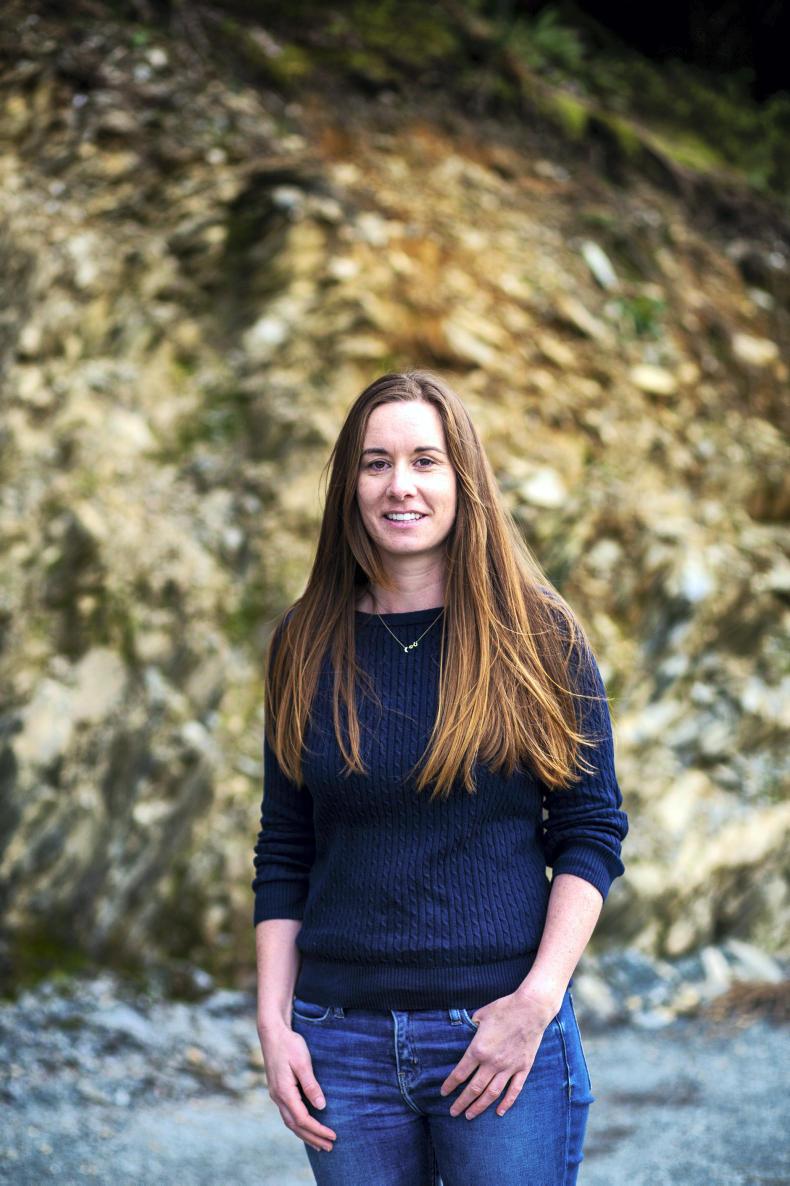
Ailbhe did her PhD in self regulation in early childhood.
Ailbhe flirted with the idea of clinical psychology, doing some work experience in psychiatric hospitals. She admits that it is one of those areas of study where you could find yourself working for free for quite some time in order to build up experience. This is, in part, why Ailbhe decided to do her master’s in applied psychology at Trinity College Dublin part time over two years, instead of in one year. It gave her the flexibility to gain experience in the field of psychology while still studying.
“I moved back home because I couldn’t afford to live in Dublin. I was able to work then as well, doing side projects related to my equestrian hobby. I was also in the psychiatric hospital in Portlaoise running groups and a voluntary assistant psychologist in a school in Dublin. For people who want to pursue clinical psychology, often there aren’t paid roles coming out of college. It misleads you a little bit.”
Ailbhe’s first full-time paid job in psychology was as a research assistant in UCD, working on the evaluation of an early childhood intervention programme that was based in a socio-economically disadvantaged area in Dublin. Families that were expecting a baby were invited to take part in the programme and some 233 signed up.
My job was to interview parents and children right through from pregnancy until they went to school
Half of those were supported by a mentor that would be a point of contact for that family to support them through parenting by discussing things like nutrition, self-care and education. The goal was to increase the school-readiness of the children in the programme. The other half of the families taking part were the control group.
“My job was to interview parents and children right through from pregnancy until they went to school. This was a massive project. When we launched the age-five results there was loads of coverage and it was really important for informing Government policy on early intervention. It was probably the first time I saw how psychology research could have such a social and policy influence.”
As a follow-up from this programme, at the age of nine, the children were revisited to see if the impact of the programme had lasted and if their school results benefitted from the early intervention programme. They found that those who had received the intervention had better test scores and cognitive functioning. As Ailbhe points out, there is no manual for parenting, so having that mentor there and coming to visit your home during a child’s infancy can make parenting less confusing.
Some families might have been going through homelessness, and others may have had drug or alcohol problems in the house
“There are studies like this in the US where they follow the kids into adulthood and look at whether they end up prison, whether they are employed and what kind of education they achieved,” says Ailbhe, adding that with the funding in place to revisit these Irish children at the age of 13, it would be good to follow them all the way through to adulthood.
“Some families might have been going through homelessness, and others may have had drug or alcohol problems in the house. If a child had a language or speech difficulty it may not be identified until they get to school.
“One of the things I loved about it was that we got to see where the data came from, a sense of the people behind the numbers. The majority of the experiences were positive, the families were welcoming, engaging and warm. But you did get situations where someone wouldn’t open the door because they thought you were the social worker.”
PhD
Ailbhe secured funding from the Irish Research Council and the Northside Partnership to do a PhD in self-regulation in early childhood. In ordinary English, self-regulation is the ability to manage your emotions and behaviours and control your reactions. But she also looked at the socio-economic differences in self-regulation and whether early intervention helped.
I found that the kids who had better verbal ability tended to be better at self-regulation
“For kids a good example is that they know when they are really excited in class they still have to put their hand up rather than shout and run around. Or if they feel like they are getting upset, they might reach out for support or distract themselves so that they don’t feel that full emotion of deep sadness.
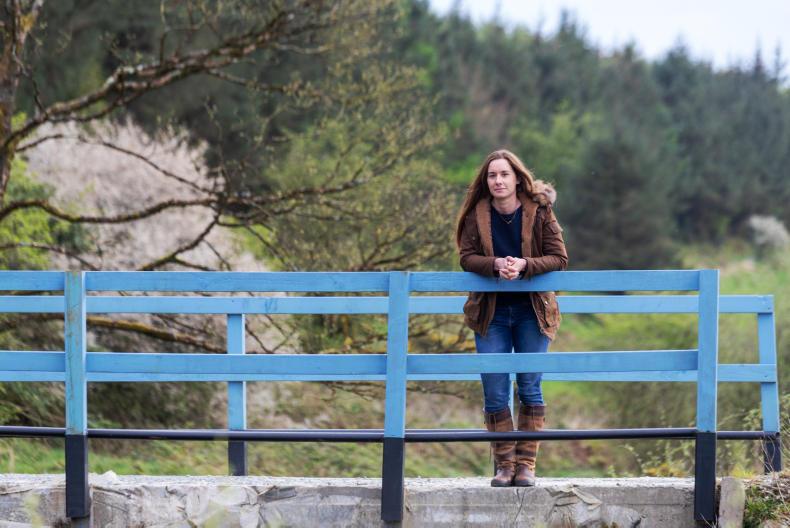
"One of the things I loved about it was that we got to see where the data came from, a sense of the people behind the numbers," Ailbhe says.
“I found that the kids who had better verbal ability tended to be better at self-regulation, no matter what their background was but it was particularly important for children from more deprived backgrounds.”
While much of her research has been conducted in urban areas, Ailbhe believes the early childhood intervention supports are just as applicable to farmer’s children.
High levels of financial pressure also impacts on your ability to create structure or routine in the day for children
“You do get the same spread of deprivation and affluence across rural families as with urban families.
“If you live in a community where very few people go to university, your likelihood of even knowing someone who went to university is going to impact your aspirations to pursue education.
“High levels of financial pressure also impacts on your ability to create structure or routine in the day for children.”
Jigsaw
Ailbhe is now research co-ordinator with Jigsaw, after finding her calling in psychology research. Jigsaw is the national centre for youth mental health catering for 12- to 25-year-olds.
It has 13 service hubs plus the national office on Pearse St in Dublin. Jigsaw hit the headlines recently when the My World Survey came out last November (see below) and when the Duke and Duchess of Cambridge visited one of its service hubs in early March.
Ailbhe and her team look at the evidence base behind Jigsaw’s activities to ensure that all of the support and workshops the organisation delivers are effective.
Jigsaw also works with schools and clubs to support youth mental health
“We monitor how the services are performing and that informs service delivery and service planning. It helps to leverage the attention of policy makers as well,” Ailbhe says.
“The in-person services are funded by the HSE. But Jigsaw also works with schools and clubs to support youth mental health. We really see young people at the centre of communities.”
Mental health difficulties are estimated to cost Ireland’s economy €8.2bn every year. With 75% of adult mental health difficulties starting before the age of 25, ensuring the service delivery is working is key. Awareness of mental health among young people is one of the focus areas for Jigsaw. One of the workshops the organisation runs trains young people to deliver awareness workshops to their peers as “young people are more likely to listen to each other”.
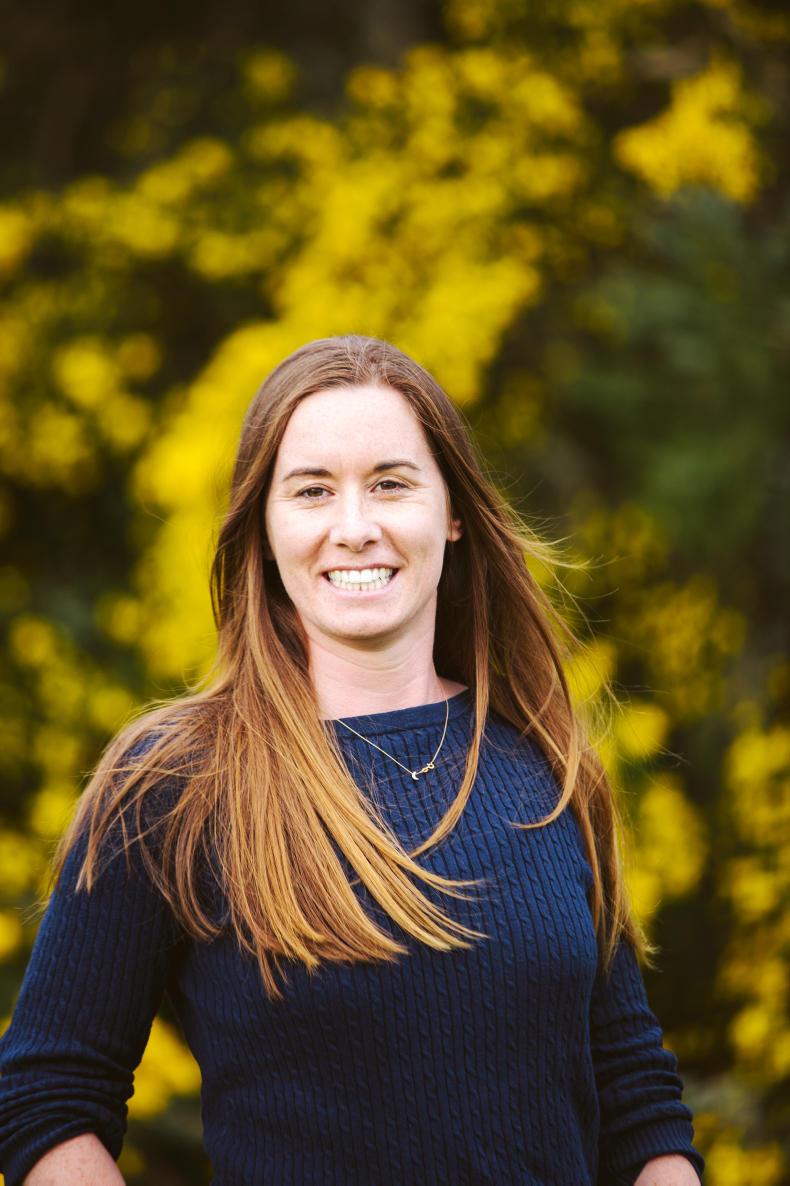
Most mental health difficulties in adulthood start before the age of 25.
If young people are more aware of mental health and can identify mild to moderate difficulties, then that will help alleviate pressure on the health service so that it can focus on more complex mental health difficulties.
The My World Survey showed that there has been an increase in the proportion of young people in Ireland with levels of anxiety and depression outside the normal range. Anxiety levels are expected to be higher among young people now as a result of the coronavirus lockdown. However, Ailbhe says she hopes that new research from the One Good School initiative that started this year, will help to improve our use of the school network to support young people’s mental health.
The My World Survey captures the views of more than 19,000 young people from across Ireland to help understand what can lead to an increased risk of mental health difficulties and what supports are needed.
It was developed by UCD’s School of Psychology and Jigsaw. The first study was published in 2012, followed by the second in November 2019.
Friends and music are among the top coping strategies for young people in Ireland.Good sleep habits and physical activity are related to better mental health.Fifty-three per cent of adolescents and 38% of young adults were classed as having poor sleep habits.Rates of anxiety and depression in young people have increased from 2012 to 2019.Having the support of an adult is important for young people’s mental health.When dealing with problems, over half of young people said that they would talk to someone. For adolescents this was most commonly a family member, whereas for young adults it was more often a friend.Spending long periods of time (more than three hours) on social media was related to higher levels of depression and anxiety and lower levels of body esteem. For adolescents the top three stressors were school, exams and homework; whereas for young adults they were college, the future and finances. Jigsaw’s Five a Day for Mental Health
Connect – Humans are social creatures. We crave connection just as we crave food and water. Our relationships with people are fundamental to our happiness – they give support and a sense of meaning and belonging in our lives.
Be active – Exercising releases endorphins that make us feel good. The simplest way to think about it is: healthy body = healthy mind. Just finding an activity that fits into our daily lives aids mood, wellbeing, sleep and much more.
Take notice – In today’s modern world, we are always “on” and this level of distraction can stop us from appreciating what’s around us. We are “mind full” instead of mindful. So, stop. Just take a few moments to be aware of what is going on within you and around you. Be curious. Be quiet. Be present.
Give –Doing good is good for us. Helping others makes us feel needed and valued and leads to a more compassionate society. So, do something nice. Give up your seat. Give a compliment. Thank someone. Smile. These simple steps can create and strengthen connections with those around you.
Keep learning – Learning opens us up to new ideas and keeps us curious and engaged. It gives a sense of accomplishment which can boost our confidence. So try something new. Rediscover an old interest. Challenge yourself to learn a new instrument or try a new recipe.
Visit www.jigsawonline.ie for supports and www.jigsaw.ie/now to support Jigsaw’s COVID-19 response
Read more
'Each day you are alive and healthy, is a day to be appreciated'
Working from home – adjusting mentally to your new normal
Often when we think of psychologists, we imagine a consultation room, a chaise lounge and an expensive “chat”. However, as a career choice there is far more to psychology than meets the eye. Research co-ordinator at youth mental health organisation Jigsaw Ailbhe Booth is a prime example of this.
Her work is helping to inform what we know about the mental health of young people and how best to support them. However, this was not an obvious career path that she set out to pursue.
Reared on a beef and tillage farm in Co Laois, like many of us, Ailbhe wasn’t sure what to study at college. After chatting to classmates and guidance counsellors, she decided to do a degree in psychology at University College Dublin (UCD). This is a three-year programme that covers modules that would be applicable to other areas such as criminology and public relations.
There are a lot of choices in the degree, research and statistics was a core component
“When I was in first year I did psychology with sociology and economics. They were three of the very popular arts courses, with 500 or more pupils in each of my classes,” Ailbhe tells Irish Country Living. “I started in week one with the joys of trying to make new friends, you meet someone on the first day and might not find them again for three weeks.
“There are a lot of choices in the degree, research and statistics was a core component. Then there were general subject areas like cognition, neuroscience and childhood development. The most popular areas would have been clinical, counselling and educational psychology because they have really clear career pathways afterwards.
“There are so many alternative options for psychology, but the dots are harder to connect than for the more well-known sides of it.”

Ailbhe did her PhD in self regulation in early childhood.
Ailbhe flirted with the idea of clinical psychology, doing some work experience in psychiatric hospitals. She admits that it is one of those areas of study where you could find yourself working for free for quite some time in order to build up experience. This is, in part, why Ailbhe decided to do her master’s in applied psychology at Trinity College Dublin part time over two years, instead of in one year. It gave her the flexibility to gain experience in the field of psychology while still studying.
“I moved back home because I couldn’t afford to live in Dublin. I was able to work then as well, doing side projects related to my equestrian hobby. I was also in the psychiatric hospital in Portlaoise running groups and a voluntary assistant psychologist in a school in Dublin. For people who want to pursue clinical psychology, often there aren’t paid roles coming out of college. It misleads you a little bit.”
Ailbhe’s first full-time paid job in psychology was as a research assistant in UCD, working on the evaluation of an early childhood intervention programme that was based in a socio-economically disadvantaged area in Dublin. Families that were expecting a baby were invited to take part in the programme and some 233 signed up.
My job was to interview parents and children right through from pregnancy until they went to school
Half of those were supported by a mentor that would be a point of contact for that family to support them through parenting by discussing things like nutrition, self-care and education. The goal was to increase the school-readiness of the children in the programme. The other half of the families taking part were the control group.
“My job was to interview parents and children right through from pregnancy until they went to school. This was a massive project. When we launched the age-five results there was loads of coverage and it was really important for informing Government policy on early intervention. It was probably the first time I saw how psychology research could have such a social and policy influence.”
As a follow-up from this programme, at the age of nine, the children were revisited to see if the impact of the programme had lasted and if their school results benefitted from the early intervention programme. They found that those who had received the intervention had better test scores and cognitive functioning. As Ailbhe points out, there is no manual for parenting, so having that mentor there and coming to visit your home during a child’s infancy can make parenting less confusing.
Some families might have been going through homelessness, and others may have had drug or alcohol problems in the house
“There are studies like this in the US where they follow the kids into adulthood and look at whether they end up prison, whether they are employed and what kind of education they achieved,” says Ailbhe, adding that with the funding in place to revisit these Irish children at the age of 13, it would be good to follow them all the way through to adulthood.
“Some families might have been going through homelessness, and others may have had drug or alcohol problems in the house. If a child had a language or speech difficulty it may not be identified until they get to school.
“One of the things I loved about it was that we got to see where the data came from, a sense of the people behind the numbers. The majority of the experiences were positive, the families were welcoming, engaging and warm. But you did get situations where someone wouldn’t open the door because they thought you were the social worker.”
PhD
Ailbhe secured funding from the Irish Research Council and the Northside Partnership to do a PhD in self-regulation in early childhood. In ordinary English, self-regulation is the ability to manage your emotions and behaviours and control your reactions. But she also looked at the socio-economic differences in self-regulation and whether early intervention helped.
I found that the kids who had better verbal ability tended to be better at self-regulation
“For kids a good example is that they know when they are really excited in class they still have to put their hand up rather than shout and run around. Or if they feel like they are getting upset, they might reach out for support or distract themselves so that they don’t feel that full emotion of deep sadness.

"One of the things I loved about it was that we got to see where the data came from, a sense of the people behind the numbers," Ailbhe says.
“I found that the kids who had better verbal ability tended to be better at self-regulation, no matter what their background was but it was particularly important for children from more deprived backgrounds.”
While much of her research has been conducted in urban areas, Ailbhe believes the early childhood intervention supports are just as applicable to farmer’s children.
High levels of financial pressure also impacts on your ability to create structure or routine in the day for children
“You do get the same spread of deprivation and affluence across rural families as with urban families.
“If you live in a community where very few people go to university, your likelihood of even knowing someone who went to university is going to impact your aspirations to pursue education.
“High levels of financial pressure also impacts on your ability to create structure or routine in the day for children.”
Jigsaw
Ailbhe is now research co-ordinator with Jigsaw, after finding her calling in psychology research. Jigsaw is the national centre for youth mental health catering for 12- to 25-year-olds.
It has 13 service hubs plus the national office on Pearse St in Dublin. Jigsaw hit the headlines recently when the My World Survey came out last November (see below) and when the Duke and Duchess of Cambridge visited one of its service hubs in early March.
Ailbhe and her team look at the evidence base behind Jigsaw’s activities to ensure that all of the support and workshops the organisation delivers are effective.
Jigsaw also works with schools and clubs to support youth mental health
“We monitor how the services are performing and that informs service delivery and service planning. It helps to leverage the attention of policy makers as well,” Ailbhe says.
“The in-person services are funded by the HSE. But Jigsaw also works with schools and clubs to support youth mental health. We really see young people at the centre of communities.”
Mental health difficulties are estimated to cost Ireland’s economy €8.2bn every year. With 75% of adult mental health difficulties starting before the age of 25, ensuring the service delivery is working is key. Awareness of mental health among young people is one of the focus areas for Jigsaw. One of the workshops the organisation runs trains young people to deliver awareness workshops to their peers as “young people are more likely to listen to each other”.

Most mental health difficulties in adulthood start before the age of 25.
If young people are more aware of mental health and can identify mild to moderate difficulties, then that will help alleviate pressure on the health service so that it can focus on more complex mental health difficulties.
The My World Survey showed that there has been an increase in the proportion of young people in Ireland with levels of anxiety and depression outside the normal range. Anxiety levels are expected to be higher among young people now as a result of the coronavirus lockdown. However, Ailbhe says she hopes that new research from the One Good School initiative that started this year, will help to improve our use of the school network to support young people’s mental health.
The My World Survey captures the views of more than 19,000 young people from across Ireland to help understand what can lead to an increased risk of mental health difficulties and what supports are needed.
It was developed by UCD’s School of Psychology and Jigsaw. The first study was published in 2012, followed by the second in November 2019.
Friends and music are among the top coping strategies for young people in Ireland.Good sleep habits and physical activity are related to better mental health.Fifty-three per cent of adolescents and 38% of young adults were classed as having poor sleep habits.Rates of anxiety and depression in young people have increased from 2012 to 2019.Having the support of an adult is important for young people’s mental health.When dealing with problems, over half of young people said that they would talk to someone. For adolescents this was most commonly a family member, whereas for young adults it was more often a friend.Spending long periods of time (more than three hours) on social media was related to higher levels of depression and anxiety and lower levels of body esteem. For adolescents the top three stressors were school, exams and homework; whereas for young adults they were college, the future and finances. Jigsaw’s Five a Day for Mental Health
Connect – Humans are social creatures. We crave connection just as we crave food and water. Our relationships with people are fundamental to our happiness – they give support and a sense of meaning and belonging in our lives.
Be active – Exercising releases endorphins that make us feel good. The simplest way to think about it is: healthy body = healthy mind. Just finding an activity that fits into our daily lives aids mood, wellbeing, sleep and much more.
Take notice – In today’s modern world, we are always “on” and this level of distraction can stop us from appreciating what’s around us. We are “mind full” instead of mindful. So, stop. Just take a few moments to be aware of what is going on within you and around you. Be curious. Be quiet. Be present.
Give –Doing good is good for us. Helping others makes us feel needed and valued and leads to a more compassionate society. So, do something nice. Give up your seat. Give a compliment. Thank someone. Smile. These simple steps can create and strengthen connections with those around you.
Keep learning – Learning opens us up to new ideas and keeps us curious and engaged. It gives a sense of accomplishment which can boost our confidence. So try something new. Rediscover an old interest. Challenge yourself to learn a new instrument or try a new recipe.
Visit www.jigsawonline.ie for supports and www.jigsaw.ie/now to support Jigsaw’s COVID-19 response
Read more
'Each day you are alive and healthy, is a day to be appreciated'
Working from home – adjusting mentally to your new normal







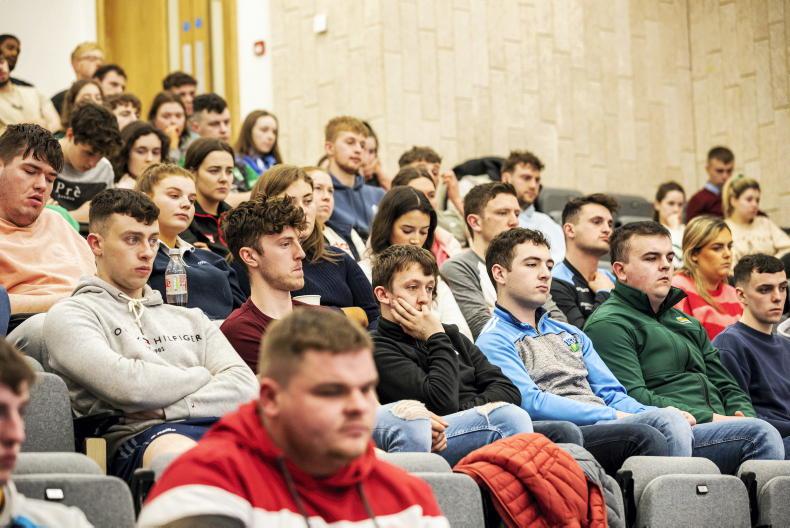
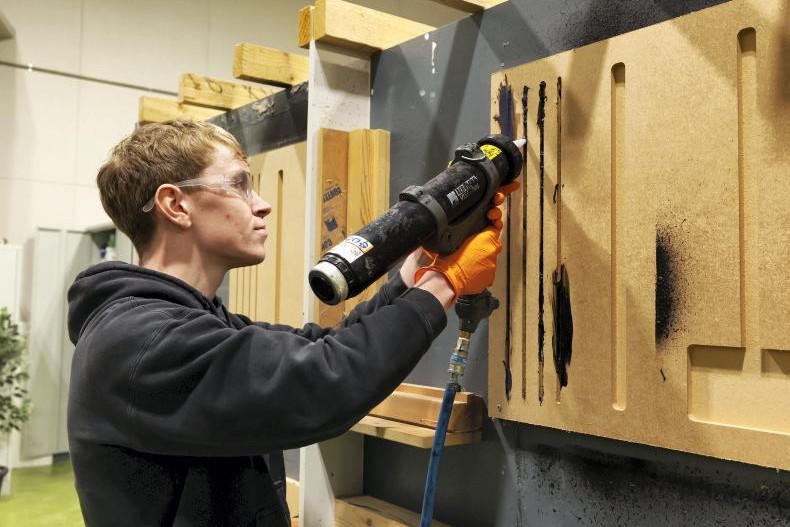

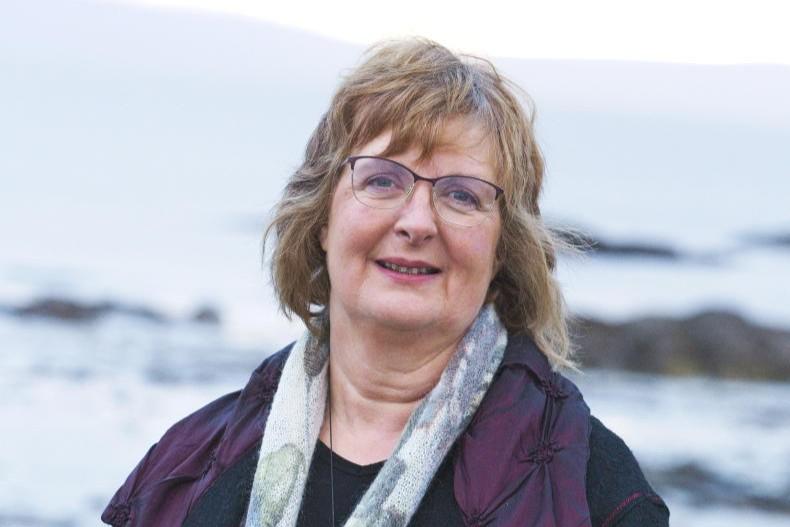
SHARING OPTIONS